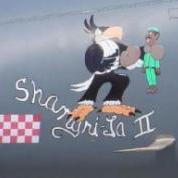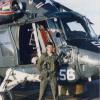Time for my annual post to this forum.
Far too much thinking is going into this topic. IFF is not trying to replicate any fighter. It is also not a G-tolerance course, although physiological adaptation is a big part of it for the WSO students who don't have any experience in a fighter-type aircraft yet. IFF is not there to build BFM monsters. The goal of IFF--as stated directly by the syllabus--is to ensure it graduates only students "who show the potential to succeed in follow-on training." The FTUs out there fill their classes based upon zero attrition from students. IFF serves as the link between SUPT and the FTUs by analyzing a student's ability to adapt to more dynamic training. For example, when a student is taught BFM, it is not the BFM the instructors are focusing upon. Rather, the BFM is a subset of the higher level goal which is a student who has his priorities as a fighter wingman correct and demonstrates the ability to adapt to a much more complex cross-check than flying ILSs at an out base. While SUPT does a pretty good job of analyzing which students belong in fighters, their syllabus does not allow for the same level of scrutiny as the IFF syllabus does. It is certainly not uncommon for a student to finish number one or two in his class based upon intense study, chair-flying for each sortie, and having a high class commander rating. But these skills don't necessarily a good fighter pilot make, if the level of necessary skill is lacking.
Secondly, the money factor. As stated before, FTUs anticipate zero attrition. That being said, every student who washes out of an FTU leaves a hole (sts) for that community until the next fiscal years comes around. On the other hand, if a student washes out of IFF on his way to F-16s, another F-16 will be dropped in a SUPT class later on. If a student washes out of IFF on the final sortie, it cost way, way less to find out than it would have been if he washed out halfway through any FTU.
Finally, there is the SNAP factor. SUPT is a very different learning environment than the FTUs, as any fighter pilot can attest to. It is a more stressful, grown-up program than SUPT. One of the goals of IFF is introduce these new stressors to a student before he gets to the FTU and finds himself struggling for reasons unrelated to flying.
The arguments of "what fighter are they trying to replicate?" and "BFM isn't flown like that anymore" are moot points. We get it. The T-38 isn't a Raptor and the bomb triangle gets more ancient everyday. But the ability to adapt to a new level of learning, in a short time period, under increased stress, for a much lower price tag, is just as important as it's ever been.
There it is. Standing by for spears.






